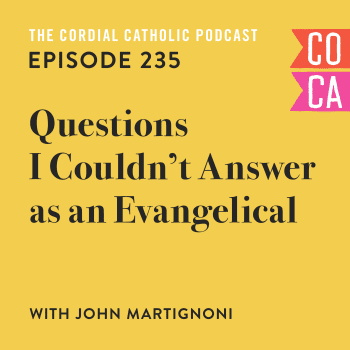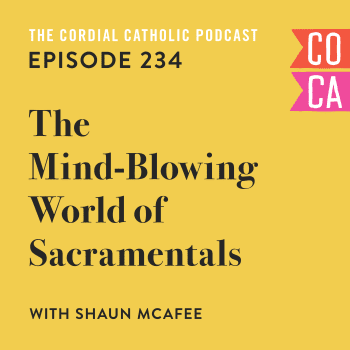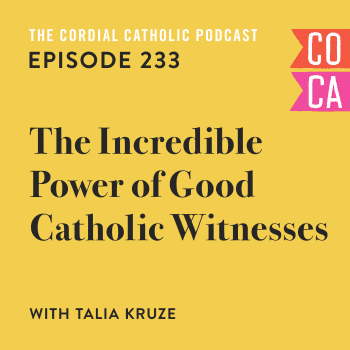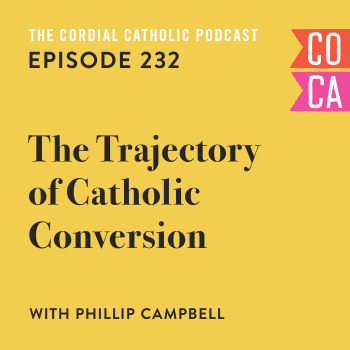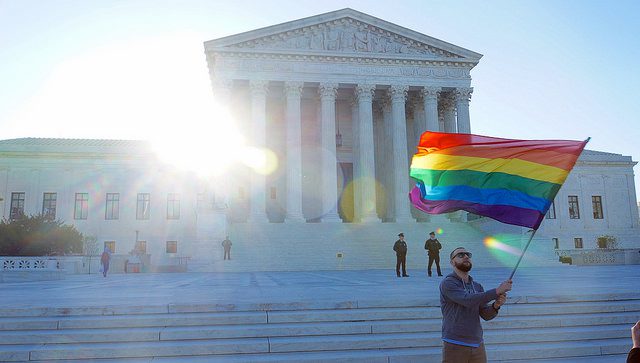
If your Facebook news feed is anything like mine then its been busting at the seams these days with discussion about the Nashville Statement.
For our purposes here it’s contents really aren’t relevant. There are those that oppose it and those that approve and these discussions will rage on, at least for a little bit longer, and then probably peter out.
But, at its core, both proponents and those opposed are desperate, it seems, for one thing: unity.
Because whether you believe that homosexuality is a sin, something beautiful to be celebrated, or something much more complicated and in between, you’re likely desperate, these days, for some kind of consensus. Someone else to agree with you in what feels like a evermore topsy-turvy world.
Am I right?
And this is what the Nashville Statement makes so starkly clear.
But as a Catholic, thank God, we don’t need a Nashville Statement.
Unity, in the Catholic Church, isn’t something that we need to long for eagerly, or hope for desperately—unity isn’t prayerfully signing your name to some paperwork to say, “Yes, in this case, at least, we’re in it together.” For the Catholic Church unity is clear and physical and a reality. At our local parish, the pastor is accountable to the Bishop who’s accountable to the Pope, who’s appointed through election by the Holy Spirit.
That’s tangible unity—and I say that, a bit cheekily, but it’s also wholly true.
The structure and composition of the Catholic Church is one of unity in discourse, and order. And, sure, some popes are evil and, certainly, some priests don’t do their job (or worse) but if we’re looking for a Church that’s visibly united in the way that Christ intended then we need look no further, I’d say.
We don’t need a Nashville Statement because the teaching of the Catholic Church is crystal clear.
And, yes, there is healthy discussion, debate, and dialogue among the Church’s sons and daughters are this is not only allowed, it’s encouraged. One of the truly beautiful realizations I came by when it came to being Catholic is the grace that it’s been figured out—over two thousand years and by people much smarter than I am. It’s not down to me to figure out every nuance of my faith—although submitting to that kind of authority, the Church, can certainly be scary.
Believe me, it’s incredibly powerful too: to believe that when Jesus said the gates of Hades would never overcome His Church he meant it.
And, in the end, this is what the Nashville Statement is trying to grasp at. I think. If we’re honest.
Its contents are really irrelevant, in this case, and I think that’s true to say because statements like this one have come and gone and they’ll come again too. What they attempt at—what this is trying to reach for—is that feeling of being together, being united, around an issue of faith. Because unity feels right in our Christian ecosystem; it feels right because it is and, ironically, in the year of the 500th anniversary of the Protestant Reformation getting together has never been a more relevant goal.
The Nashville Statement makes that very clear.



